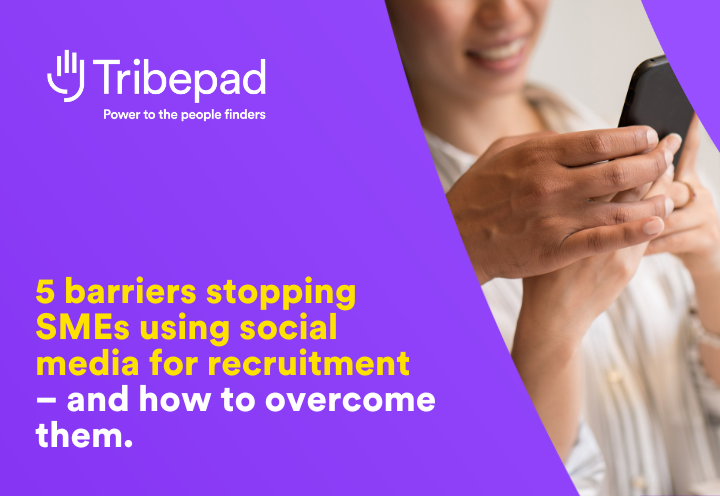Zappos’ CEO Tony Hsieh famously claimed that bad hires cost Zappos well over $100-million. Sounds excessive – but do you know the true cost of a “bad” hire? How much do hiring mistakes really cost your organisation?
It’s impossible to get to an exact number, but let’s explore some of the issues at play. Because poor hiring decisions are much more expensive than just the cost of recruitment.
Seven costs of a “bad” hire (or why poor hiring decisions are more expensive than you think)
1 – The cost of recruitment
The most obvious financial impact of hiring the wrong person is the cost of recruitment. In-house resourcing time, advertising costs, employment agency fees: these things add up.
According to the CIPD’s 2022 Talent Planning report, the median average cost per hire for a senior manager is £3000 and £1500 for other employees. That’s your baseline, then, if you’re forced to re-open a job.
(It’s worth saying that the cost of hiring an employee is often much higher. Organisations often lack clarity over recruitment costs, and estimates are notoriously inaccurate. Only a quarter of respondents to the CIPD’s report could provide estimates here, and only accurate to +/- 20%.)
Plus, if you’re going back to the market you’re already behind the curve on time-to-hire so your talent pool has shrunk. Realistically, it’s going to take longer to hire someone great: AKA, it’ll cost more. And the risk of making another bad hire goes up too.
As a guesstimate, let’s add a conservative 20% onto that £3000: £3600.
2 – The cost of onboarding
Recruitment costs are typically calculated separately from onboarding costs. Assuming the hire made it through your whole process, you’ll also need to factor in the cost of onboarding a new employee.
That includes stuff like in-house onboarding time, training materials, productive time-lost to training, background checks, work gear, welcome kits, equipment, and so on.
Some guesstimates:
- In-house onboarding time: about £350
- Training costs: about £1000
- Welcome kits: around £50
- Background checks: £50 to £100
- Office space and equipment: £4800/year
All things considered, let’s assume you’re spending at least £2000 to onboard each new hire.
3 – Compensation costs
Even if the person you’ve hired isn’t quite right, you’re still paying them. So don’t forget to include the proportion of these costs across their tenure.
- The UK’s median gross annual salary is £27,756
- Standard Class 1 NI is 13.8%, so £3830
- Minimum 3% of their salary into a pension: £833
Using those figures, you’d be looking at £32,419/year. Assuming you discover within three months that your newest hire isn’t right, that’s a median of £8105 in sunk costs. And that’s before you consider any possible severance pay.
Just looking at these three immediate costs, then, our guesstimate figures suggest a “bad” hire costs you £13,500 in direct costs alone. And that’s only the start…
4 – Performance management costs
We’re getting into the hard-to-quantify but still-extremely-real costs of bad hiring with the time, energy, and productivity losses that come with excess performance management.
Imagine a fantastic new hire, six months into the job. They’re our baseline, at 100% productivity. Then imagine a new hire who isn’t working out, struggling along at 25% productivity.
Their manager has to invest a heap more time into helping that employee than the former. And HR, too, supporting both the manager and the employee. One bad hire can take up an enormous amount of internal bandwidth.
5 – Culture costs
Getting recruitment wrong can have a big cost on your culture. Because the thing about culture is, it’s constantly created, lived, and breathed within every employee. It’s the sum of its parts (when it’s good, perhaps more than).
If one person isn’t contributing positively, the impact on the whole is negative. (And that’s even more true if we’re talking about a senior hire).
Cultural erosion might be impossible to quantify, but it’s easy to feel. It’s easy for employees to feel. And eventually, it’ll become easy for future candidates to feel, hurting your employer brand and making recruitment harder (and more expensive).
If you care about your culture, it’s imperative to hire the right people the first time.
6 – The costs of overworked teams
When one team member isn’t pulling their weight, everyone else picks up more slack. Come back to that 75% productivity difference between a fantastic hire and a poor hire: to maintain team performance, that gap needs filling somewhere.
But consistent overwork also comes with costs. Gallup’s research shows burned out employees are:
- 63% more likely to take a sick day
- 2.6x more likely to look for another job
- 13% less confident in their performance
- 50% less likely to discuss performance goals with their manager
In other words, poor hiring can ultimately contribute to an increase in absence costs (already up to 16% of your annual salary bill and at a ten year high), turnover costs (over £30,000 per employee), and productivity costs.
7 – The costs of delayed and sub-par work
Ultimately, poor hiring decisions impact productivity. Maybe not immediately, as other team members pick up the slack. But eventually.
And when that happens, the quality of work suffers – which means your clients, customers, or end-users suffer.
Left unchecked, how long before that starts to hurt your reputation? And how long before you start to see the impact in your bottom line?
How can you improve your hit rate?
We’re not saying one bad hire is a disaster but every recruitment team should be working to improve their hit rate. The cost of a bad hire is hard to quantify exactly, but this list shows what a big impact poor hiring decisions can have for the organisation long-term.
A recruitment function that consistently, reliably delivers excellent people is an enormous source of competitive advantage. And the reverse is true, too.
Does your team have the strategy, people, processes, and technology in place, to deliver great people? And if not, what can you change?
Nobody will always get hiring right. But the right tools and approach can help you hire fairer, faster, and better, more of the time.
Looking for actionable tips to improve hiring decision-making? Here are 31 practical ways to improve quality of hire.
Tribepad is the trusted tech ally to smart(er) recruiters everywhere. Combining ATS, CRM, Video Interviewing, and Onboarding, our talent acquisition software is a springboard for faster, fairer, better recruitment for everyone.
Trusted by organisations like the Tesco, NHS Professionals, and Subway, 25-million people in 16 languages use Tribepad.




